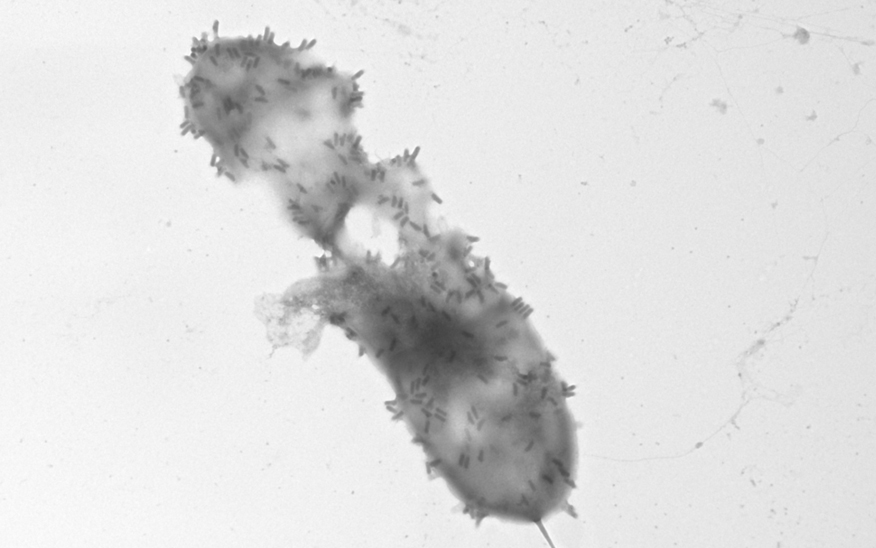With CUSTUS®YRS the STIM scientists successfully accomplished to develop a phage product that efficiently controls Yersinia bacteria in bio-filters, well boats and production water and prevents outbreaks of yersiniosis. New challenges await.

Growing resistance against antibiotics is the greatest threat to human health in our time. The use of antibiotics in food production is partly to blame. With that backdrop, it was a small sensation when STIM in 2018 got the approval for a phage product that efficiently removes a harmful bacteria and outbreaks of a disease which has antibiotics as its only cure.
Bacteriophages, or phages, are the world most numerous organisms. They are naturally occurring viruses, which only function is to attack and kill their specific target bacteria, and in the process multiply. They are natural predators of bacteria, and Nature’s own biocontrol tools, efficiently ensuring that no single bacterium becomes too dominant in an environment.
Phages are highly adapted to infect specific bacterial hosts, and as a result of this host specificity, only target bacteria are killed during treatment. In other words, bacteriophage-based products do not affect the commensal microflora of the patient or aquaculture farm water, which is a common side-effect of broad-range antibacterials.
Our Bacteriophage therapy project was started in 2011 and has seen promising results of phage therapy against many bacterial pathogens common in aquaculture.
Our first approved product, CUSTUS®YRS, contains five hundred thousand billion Yersinia-killing phages per liter. As these are added in high density to production water or bio-filters an upper limit for the concentration of Yersinia ruckeri that can possibly prevail in the water is quickly established. If the infection pressure is already higher than this limit, it will quickly fall below the limit and prevent the spread of bacteria to healthy fish.
The product is currently only available in Norway, but work is underway to make it available in Scotland, Chile and other salmon producing countries as well.
STIM research show that Yersinia ruckeri can be found in almost all Norwegian hatcheries, also where the most usual qPCR analysis shows the opposite. Even though this is a freshwater bacterium, the fish brings it with them to the sea where we have seen several outbreaks in later years, mainly in connection with handling and stress. Tests from well boat treatments have shown that the fish in such instances may release large amounts of the bacteria, which combined with the stress of the operation paves the way for an outbreak.
CUSTUS®YRS are used strategically in bio-filters, production water and sedation baths in order to minimize the infection pressure prior to stressful operations. It may also be used in well boat treatments.
Efficient vaccines in Norwegian aquaculture means that the real potential for new phage products are found elsewhere. The STIM scientists have worked for several years on Asian shrimp production and has identified target bacteria that causes EMS and isolated phages against these bacteria. EMS is caused by specific Vibrio bacteria and is one of the greatest health challenges in international shrimp production. In collaboration with Norwegian and Vietnamese scientist, STIM are currently conducting trials with the EMS phages in Vietnam.
We believe that bacteriophages will be important means of reducing the use of antibiotics in aquaculture industries worldwide. Our target products are safe, natural, efficient and targeted against specific bacterial pathogens, thus leaving minimal environmental footprints.